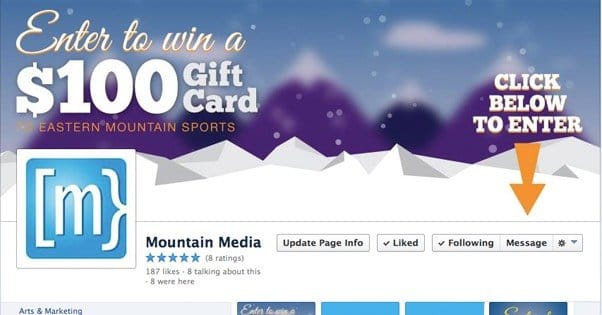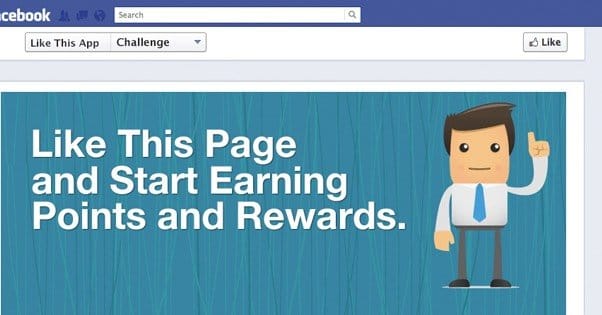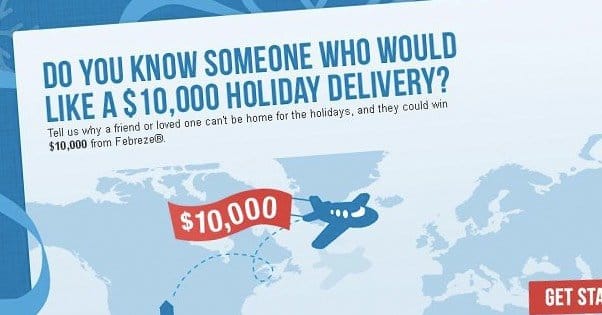 Written by ContentPowered.com
Written by ContentPowered.com
Giveaways on Facebook are an interesting topic. On the one hand, you have a ton of legitimate companies running them, giving away everything from cosmetics to gift cards to computer parts and video games. On the other hand, you have scammers circulating the same old pictures of a car or a stack of the newest iPhone, claiming they have an overstock and that if you just like this vaguely official-looking page, you can be entered to win one of them. The scams are clearly scams, yet people fall for them.
All of this points to the idea that giveaways on Facebook have to be worth it, don’t they? If they weren’t worth it, what big business would still use them? If they weren’t worth it, what user would ever inter one or fall for a scam?
Then again, if you think about marketing techniques and SEO, you can always point to techniques that clearly don’t work, that haven’t worked in ages, and yet that people still use. Rumors circulate and false beliefs are held because people refuse to accept new evidence. People take anecdote in replacement of fact, and draw conclusions based on flawed information. Just because people do it, no matter how high profile those people are, is absolutely no indication that it’s something worth doing.
The fact is, though, I believe that Facebook contests and giveaways are very much worth it, even if they can’t be used in the same ways they used to.
The old way, of course, was like gating. Like gates were the default back then. In order to see the content of a Facebook page, you would have to like that page. In order to incentivize people to like a page, businesses would offer an item for free, or a contest with a larger prize for free to one winner per month, or something like that. You had to like the page to enter the contest, but many people felt it was a small price to pay for a chance to win that prize.
Of course, this led to a lot of brands with very low engagement, because they got their followers from contests. When someone doesn’t win, they immediately start out disappointed, and every post they see reinforces the contest they didn’t win. Facebook didn’t like it and removed the like gate function entirely. Some people have come up with plugins for websites that add like gate functionality, called social lockers, but they aren’t the norm anymore.
Nowadays, while you can’t like gate a page, you can still use a contest or a giveaway to incentivize people liking your page. You just make liking your page part of the entry rules of the contest. You won’t get as many guaranteed likes, but you’ll get plenty.
If you want proof that giveaways can still work, you can use the Blue Steel Jewelry case as proof. They’re a company that went form around $3,000 per month in sales to $30,000 entirely because of Facebook contests, no additional advertising required. Now, they’re not necessarily representative of everyone running contests on Facebook, but they’re an example of the kind of success you can find.
Now, contests need to be run properly in order to succeed. You don’t want to end up looking like one of those scams. You don’t want to offer the wrong kind of prize and end up disgusting your users. You don’t want to attract the wrong kind of users. There’s a surprising amount to consider.
Before we begin, let’s take a look at some successful contests that can be used as a sort of role model for what you can do with Facebook giveaways.
Examples of Excellent Contests
For examples of high quality Facebook contests, you need go no further than the Shorty Awards. These awards are an annual contest reviewing Facebook contests from throughout the year. They consider all aspects of the campaign, from what the prize is to the promotion used to circulate it, to even how effective it is. Here are some top examples.
Briggs & Stratton Mower Mouth – This contest was designed to promote the new quiet technology for lawnmowers and other lawn care power tools. Their prize was a new mower and $5,000 in cash, and the entry was correspondingly difficult for the average user. No simple like and share here; users had to submit videos of themselves impersonating lawnmower noises. Reportedly, this contest got their brand 3.3 million impressions, 25,000 clicks on their content, and a 43% increase in Facebook fan growth despite not requiring a like for entry.
SportsCenter “This Is SportsCenter” – SC is not a small brand. They had over 8 million followers on Facebook already when they launched this contest, so they had to do something special in order to see decent returns. What they did is produced a series of commercials and asked fans to rank them in a top 10 order. It took existing marketing content and got fans interacting and engaging with it, via the means of an app on Facebook. Their prizes didn’t include any one massive winner; instead, 20,000 users were given simple gift cards to Burger King when they rated the videos. The contest garnered them over 1.1 million votes and a significant increase in following. Plus, as an added stroke of brilliance, that feedback was definitely useful to future advertising production, like a focus group writ large.
The Peanuts Movie Peanutize Me! – This contest is one you probably saw last year while browsing Facebook, if you’re a casual user at all. Ludomade, in collaboration with 20th Century Fox, producers of the Peanuts movie, created a Facebook app that allowed users to create their own Peanuts character. They were encouraged to create a version of themselves using the 860+ assets in the app, though many people got more creative with it than simply making themselves. The app generated 17 million website visits, 7 million characters created, 3 million shares on Facebook, and a 48-hour trend on social media. All told, the movie ended up making $44 million on opening weekend.
Of course, all of these are large brands, with large budgets, the capability to leverage large or voluminous prizes, and large followings already. What about the rest of us, we smaller brands who have to work harder to find social media success?
Rather than regale you with tales of brand contests for companies you’ve never heard of, I’m just going to jump into helping you run a contest of your own. What follows are a series of tips you can put into practice for creating and running a contest.
Tips for Successful Facebook Giveaways
#1: Make sure you have an audience that is large enough to support a basic contest. How can you determine this? Think about it this way; how much do you typically grow in, say, a week? How much does it cost to acquire a single follower? How much do you think you would be able to boost your growth with a contest? What is the value of the prize you want to give away? You need to balance the answers to these questions. There’s no sense in giving away a $50 handbag in a contest that only gets you 10 followers on an audience of 1,000 existing followers.
#2: Determine the type of contest you want to run. There are as many contests as there are people coming up with contest ideas, but they can all be boiled down to one of four categories.
- Sweepstakes contests, wherein the user enters a contest with little or no entry requirement, such as through Gleam, and a winner is drawn at random.
- Essay contests, where users are asked to submit written content in some way. “Essay” is a bit of a misnomer, though; a photo caption contest or favorite tweet contest can fall under this category, as can a storytelling contest.
- Photo contests, where users are given a subject or a theme and are asked to produce photographic content that follows that theme. You judge them and pick a winner at some future date.
- Video contests, where users are tasked with creating video content, like the lawnmower contest above. These tend to be hard to enter, and as such must have higher value prizes.
In general, the easier a contest is to enter, the less valuable the prize can be. You can scale up either the value or the volume of the prize depending on the size of your audience. For example, if you have an audience in the thousands, you might give away $10 gift cards, and you might have 20 of them on offer. If you have 100,000 people in your audience, a mere $200 in gift cards isn’t much incentive. You can offer 100 of them instead, or increase their value to $50, or do something else to make it more attractive.
#3: Learn the Facebook rules and regulations for contests and giveaways on their site. They have a pretty detailed terms of service for contests, and you need to make sure you aren’t violating a rule when making your contest. You can find their official rules in the Promotions section of their general terms of service.
#4: Pick a goal for your contest. Do you want more subscribers for your mailing list? Do you want more Facebook followers? Do you want more sales? These choices will inform the kind of prize and the kind of entry method you choose for your contests. For example, if you simply want more followers, you can use an app like Gleam, that uses “follow the page” as an entry method for a sweepstakes giveaway. If you want more mailing list subscribers, you might send people to an external landing page, where they are asked to input their email address in order to enter the contest.
In general, a contest should meet certain requirements. It should be specific, so no “I want to grow my brand!” answers. It should be measurable, meaning you should be able to track the people who enter and how they engage with your brand. It should be attainable, so no “I want 1,000,000 followers” for a small business with 500 to start. It should be relevant to your brand, and it should be time-limited. No open-ended every-day giveaways, both your users and Facebook will dislike you for it.
#5: Pick a relevant prize for your contest. I use this analogy frequently, but think about it like this. If your prize is an iPhone 7, who is going to enter your contest? It doesn’t really matter who you are as a business; everyone who has an interest in the iPhone is going to enter. People who have no interest in the iPhone but saw the deal on SlickDeals and want to resell the item will enter. You’ll get a lot of entries, but very few of them will be people who actually matter to your business.
Rule number one for prizes, then, is to pick a prize relevant to your business and to your audience. Generally, this will mean something you sell. A coupon code for 10% off is good for a “first 10,000 entries win” style contest. A gift card is good for a slightly more limited contest. A small product can be good for short, easy to enter contests. Higher value items and partnerships with other brands can be good for harder to enter contests.
#6: Fill out the details. You need a terms of service, privacy policy, and all the other rules clearly written out somewhere. You need good photography of your prize, and a firmly written entry method that makes it clear what is and isn’t acceptable as an entry. You need eligibility restrictions if necessary. You need to promote your contest, up to and including using paid advertising to do it. You need to track metrics about the contest, including how much you’ve spent and how much you’ve grown in response. Keep track of everything.
It’s not hard to come up with a basic contest and implement it. It’s a lot harder to make it go viral, measure it, analyze it, and repeat your success.





